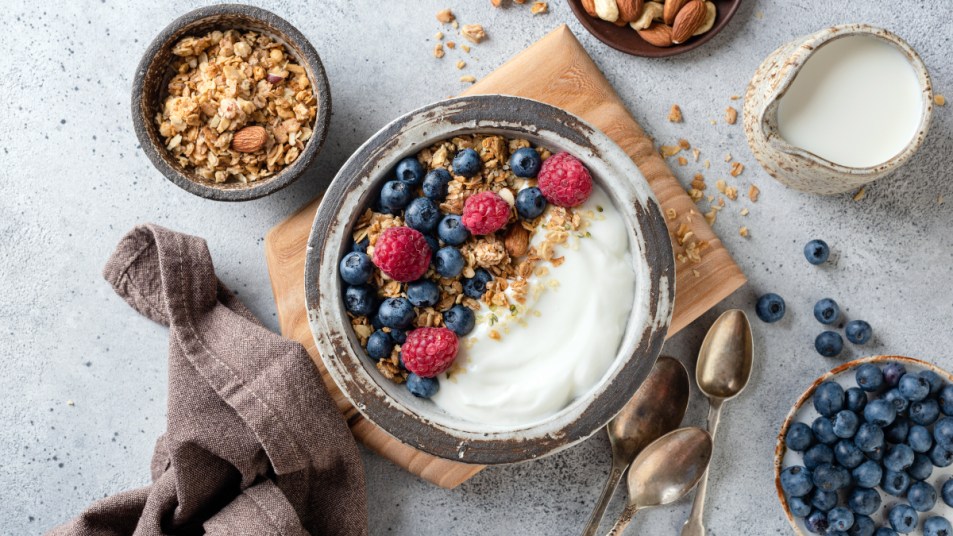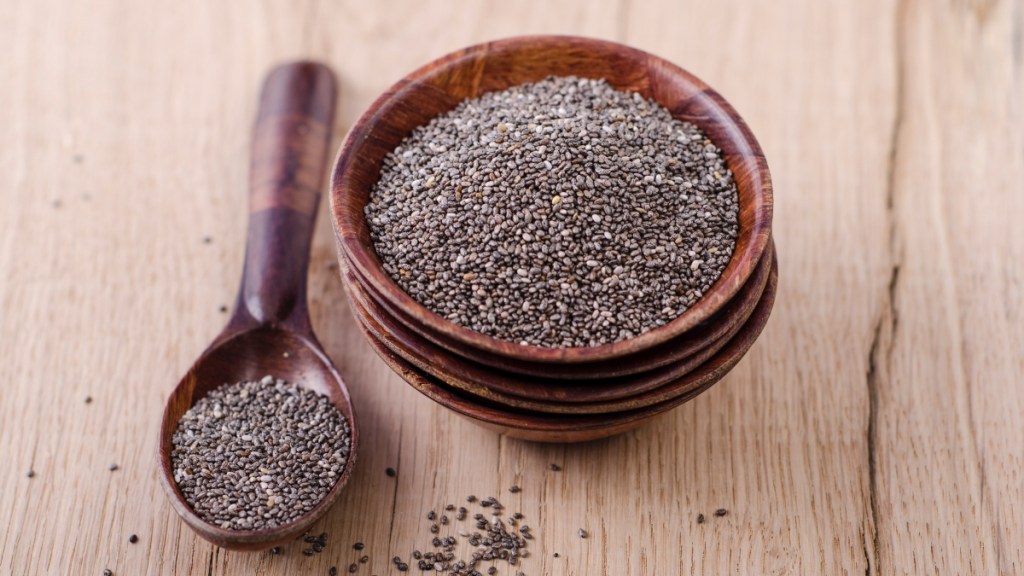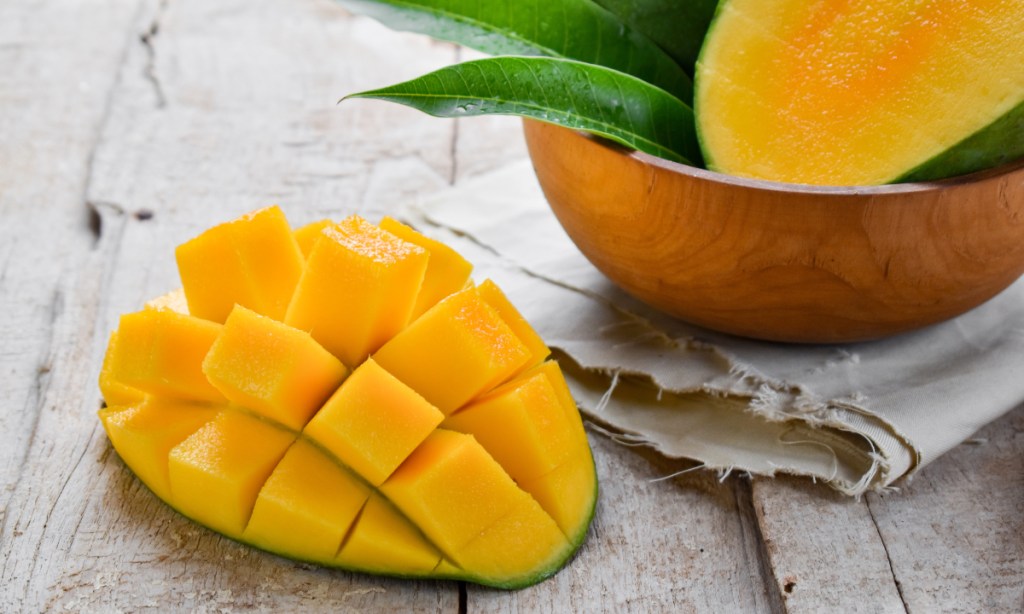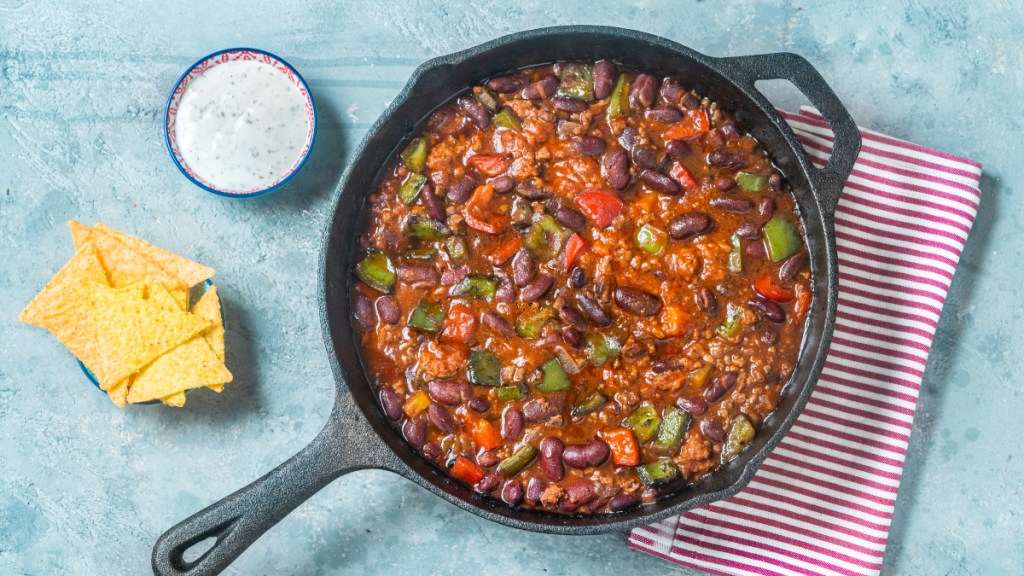Is Yogurt Good for Constipation? Yes — And So Are These 9 Other Foods
Plus, the smoothie stir-in that doctors agree is one of the best ways to get things moving

It’s a fact of life: What goes in must come out. When you’re dealing with a bout of constipation, though, you know that sometimes this can take ages. And while laxatives can help, they can sometimes cause painful cramping and bloating, too. So it’s no surprise that more people are turning to natural remedies like yogurt. But that may leave you wondering, is yogurt good for constipation? It turns out the answer is yes. Found out how the kitchen staple gently gets things moving again, plus nine more tasty foods that can help.
Understanding what causes constipation
Constipation can come in different forms. You might have fewer than three bowel movements per week or have trouble passing them. You could also notice that your stools are hard, dry or lumpy.
The top causes? It may come as no surprise that “not drinking enough water and not getting enough fiber are really, really high up there,” says physician nutrition specialist Melina Jampolis, MD. (Click through to learn how GI conditions like IBD and IBS can cause constipation, too.)
Certain medications such as antihistamines, pain medications, antidepressants and blood pressure medications can also cause constipation, Dr. Jampolis adds. You may also struggle to move your bowels if your body doesn’t get enough movement throughout the day. “Exercise works to move things through your system,” says Dr. Jampolis. “It’s really important to exercise regularly. Even just standing more can get things moving through.”
And if you’ve noticed constipation occurring more frequently over the years, it’s not your imagination. “Research suggests that constipation is common during the menopausal transition and postmenopause,” explains registered dietitian Erin Palinski-Wade. This could, in part, be because a decrease in estrogen affects muscle tone and contractions in the intestines that are necessary to keep things moving. (Click through to learn how constipation can trigger hemorrhoids — and how to get rid of them.)
No matter the cause, constipation can go away quickly or it can persist for weeks or even longer. The good news is that in many cases, there are certain foods that can get your digestive system back on track again — no meds needed.

How a ‘constipation plate’ can help
Switching up your diet is often all it takes to help relieve constipation. The changes don’t have to be big, either. Even small, simple changes can make a big difference, according to Palinski-Wade. So what’s the recipe for a digestion-friendly diet?
Dr. Jampolis says, “we can do our own little play on MyPlate, but it’s the constipation plate. Think of it as a triad: probiotics, plus liquid, plus fiber-containing foods.” A smart bet: “One whole grain or legume, one high-fiber fruit, one high-fiber vegetable and one serving of nuts or seeds. Plus, on the side, a serving of kefir or yogurt most days,” suggests Dr. Jampolis.
Spoiler: Yogurt is a great source of probiotics, and we’ll explain why that’s important for alleviating constipation later. As for fiber, you’ll want to get both types: soluble and insoluble. Soluble fiber slows digestion and is found in foods such as oat bran, peas and beans. Insoluble fiber (found in foods such as nuts, cauliflower and potatoes) bulks up stool and may help food pass through your stomach and intestines more quickly.
You should aim for 14 grams of fiber for every 1,000 calories you consume. For example, if you tend to eat about 1,800 calories per day, you should consume 25 grams of fiber. Not counting calories? A good general guideline for women over 50 is at least 21 grams per day.
Some fiber-rich foods are high in sugar, so you don’t want to rely on a single food for all your fiber needs. Fortunately, you don’t have to — fiber can be found in many fruits, vegetables, whole grains, legumes, nuts and seeds.
Increase your fiber intake gradually
While adding fiber to your diet helps thwart constipation, eating too much too soon can cause diarrhea, cramps and bloating, says Palinski-Wade. A better bet is gradually increasing your daily intake over the course of a few weeks.
“How fast to increase depends on where you start and how healthy your gut is in the first place, so it is very individual,” says Dr. Jampolis. “If your fiber intake is very low, try adding a new fiber-rich food — like raspberries, chia, oats or beans — every few days, with plenty of fluids, to see how your body responds.” If you don’t drink more fluids as you increase fiber, your constipation may worsen. Dr. Jampolis recommends eight glasses of fluids per day. (Tip: Fiber is a natural mood lifter, too. Click through to learn how fiber may work better to boost your mood than antidepressants.)
Is yogurt good for constipation?
When it comes to easing constipation, yogurt is a smart choice. Dr. Jampolis says that enjoying a cup of yogurt almost every day can help you pass stool. For that you can thank probiotics, which are helpful bacteria. A review in The American Journal of Clinical Nutrition suggests that food with probiotics might soften stool, making it easier to pass. It may also help you use the bathroom more often.
“Yogurt helps, especially if you do Greek yogurt,” Dr Jampolis says. “You really want to look for products with live active cultures. I like to tell people who are struggling with constipation to add fiber to their yogurt because excess protein without adequate fiber can also lead to constipation.” Try sprinkling oat bran, fruit or nuts over your yogurt to bump up the fiber content.

More foods that are good for constipation
While yogurt is one of the best ways to ease constipation naturally, there are more foods that help. Here, 9 tasty snacks and side dishes that help get things moving again.
1. Kefir
Kefir is a fermented milk that has a lot of similarities to yogurt, but it may actually beat out yogurt when it comes to probiotic content. “The probiotics in yogurt are beneficial, but kefir is probably even better because it’s much higher in probiotics and has multiple strains of probiotics,” explains Dr. Jampolis.
A study in the International Journal of Environmental Research and Public Health found that folks who at kefir daily noticeably reduced their constipation within two months. Dr. Jampolis recommends having a serving (about a cup) of either kefir or yogurt most days.
2. Chia seeds
Chia seeds are loaded with fiber (10 grams per ounce!), and much of it is insoluble. So it’s no wonder why our experts say chia seeds are one of their favorite picks.
“Chia is a rockstar,” says Dr. Jampolis. In fact, chia seeds are her go-to for everything related to constipation. “I absolutely love it. I think it’s so easy and potent. My favorite way to enjoy chia is in plain Greek yogurt with cinnamon and stevia.”
And Palinski-Wade recalls success relieving a family member’s constipation by adding a scoop of chia seeds into their smoothie each morning along with a few other simple dietary changes. “Start with about ½ to 1 tsp. at a time and gradually increase to about 1 Tbs. per day if you are new to chia seeds,” suggests Palinski-Wade.

3. Prunes
Prune juice is one of the most famous natural remedies for constipation, and for good reason: It works, Dr. Jampolis says. Like chia seeds, prunes — and their juice — offer fiber. They also contain sorbitol, a carbohydrate with a natural laxative effect. A review from Alimentary Pharmacology & Therapeutics found that people with constipation who ate two servings of prunes (about 10 prunes) daily increased their bowel movements within three weeks.
“Prunes are a great on-the-go option to help prevent or manage constipation,” adds Palinski-Wade. “Add them into snacks such as homemade trail mix, or puree and use in a 1:1 ratio as a sugar swap for baked goods like muffins. You can also enjoy prune juice on its own or as part of a smoothie.”
4. Kiwi
When you think of fruits that help relieve constipation, kiwi may not be the first to come to mind. But research in the American Journal of Gastroenterology found that eating two green kiwifruits per day for four weeks improved symptoms for patients with constipation. According to Dr. Jampolis, this is because kiwi is a high-fiber fruit. Each of these juicy gems weighs in at 2.1 grams of fiber. And if you eat a cup of sliced kiwi, you’re looking at 5.4 grams. (Click through to learn how beetroot can help ease constipation, too.)
5. Mango
Since a single mango offers 5 grams of fiber, it’s no surprise that mangos would fall on this list. Proof it works: A study in Molecular Nutrition & Food Research found that people had more frequent bowel movements after eating 300 grams (about two cups) of mango per day for a month. In fact, researchers found the fruit relieved symptoms of constipation even more effectively than you’d expect from their fiber content alone. According to Palinski-Wade, this is because of “the presence of bioactive polyphenols” which may boost gut health. (Click through for the mango peeling hack to remove the skin in seconds.)

6. Apples
An apple a day doesn’t just keep the doctor away — it can also keep constipation at bay. A review in Frontiers in Nutrition suggests that apples bulk up stool and support digestion. This is because apples are another good sources of fiber, says Dr. Jampolis. One medium-sized apple boasts more than 4 grams. Apples also have plenty of water, “which is important as too much fiber without adequate water can actually cause constipation,” says Dr. Jampolis. “I eat apples a few times a week and I have a bowl of mini apples in my office for patients.”
7. Oranges
When it comes to easing constipation, “the idea is really to get variety and different types of fiber,” says Dr. Jampolis. “Oranges have a type of fiber called pectin, which may be especially helpful.” Like apples, which are also rich in pectin, oranges help food pass through your system more quickly, research suggests. Dr. Jampolis recommends eating a high-fiber fruit like oranges at least three times a week. (Tip: Take a deep whiff of oranges’ citrusy scent while you’re eating them — orange oil boosts your health by taming stress, too.)
8. Beans
Whether you enjoy them as as a side dish, added to nachos or stirred into chili, beans can help ease constipation. A study in BMC Public Health suggests that people who eat more fiber-rich beans are less likely to have constipation. As with many other foods on this list, that’s thanks to their fiber content. “I would say to have beans at least twice a week,” suggests Dr. Jampolis.
Not a fan of beans? No problem! Savoring other types of legumes such as peas and lentils can help, too. Palinski-Wade points out that legumes are a great source of both soluble and insoluble fiber.

9. Broccoli
Broccoli is not only a good source of fiber, it also offers sulforaphane, a compound that can “help protect the gut from common digestive problems” such as constipation, explains Palinski-Wade. And as it turns out, broccoli sprouts contain even more sulforaphane than mature plants. A study in the Journal of Clinical Biochemistry and Nutrition found that participants had an easier time using the bathroom after eating 20 grams of broccoli sprouts daily for four weeks. (Click through for more broccoli sprout benefits.)
When to see a doctor for constipation
While adding more fluids, probiotics (like those in yogurt) and fiber to your diet can help ease constipation, our experts say it’s important to note that some people may respond differently to certain foods. For example, those with irritable bowel syndrome may not be able to tolerate apples or dried fruits. And dairy products such as yogurt may make constipation worse for people with lactose intolerance.
In any case, you should contact a healthcare provider if your constipation doesn’t improve with self-care or is accompanied by symptoms such as weight loss, black stool, bleeding, or severe or continuous stomach pain. You should also consult your doctor if your constipation is long-term or you haven’t had a bowel movement in three days.
And finally, Dr. Jampolis adds that you’ll want to call your doctor if your constipation came on suddenly, for no apparent reason, or if you have a family history of conditions like colon cancer.
For more ways to ease digestive upset:
Doctors Break the Silence on Stress and Diarrhea: What They Want You to Know
This content is not a substitute for professional medical advice or diagnosis. Always consult your physician before pursuing any treatment plan.
















